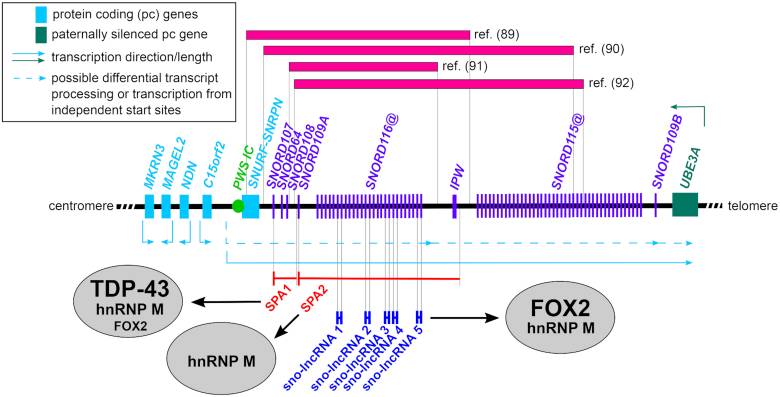It’s well known that DNA and proteins play an essential role in health and illness, but considerably less is known about the impact of RNA. RNA comes in several varieties that have tremendous influence over how genes and proteins behave. With that, RNA also represents an extremely promising field for new approaches to treatment of many diseases.
Our work is focused on functional characterization of noncanonical RNAs, especially snoRNAs. We are using state of the art methods such as COMRADES and PARIS, to capture rare and transient interactions. Our primary goal is functional characterization of noncoding RNAs in ALS/FTD and Prader-Willi Syndrome.
Deletion of paternally expressed SNORD116 gene cluster (a group of C/D-box snoRNAs) was shown to be the primary genetic determinant of the Prader-Willi syndrome, the most common genetic cause of life-threatening obesity in children. In one of our projects (funded by PWSR) we are studying the RNA interactome of SNORD116 and disease relevance of those interactions.

Selected publications
- BRATKOVIČ, Tomaž, BOŽIČ, Janja, ROGELJ, Boris. Functional diversity of small nucleolar RNAs. Nucleic acids research, 2020, 48, 4, 1627-1651.
- BRATKOVIČ, Tomaž, ROGELJ Boris. The many faces of small nucleolar RNAs. Biochimica et Biophysica Acta, 2014, 1839, 6, 438-443
- BRATKOVIČ, Tomaž, MODIC, Miha, CAMARGO ORTEGA, Camargo, DRUKKER, Micha, ROGELJ, Boris. Neuronal differentiation induces SNORD115 expression and is accompanied by post-transcriptional changes of serotonin receptor 2c mRNA. Scientific reports, 2018, 8, 5101.


